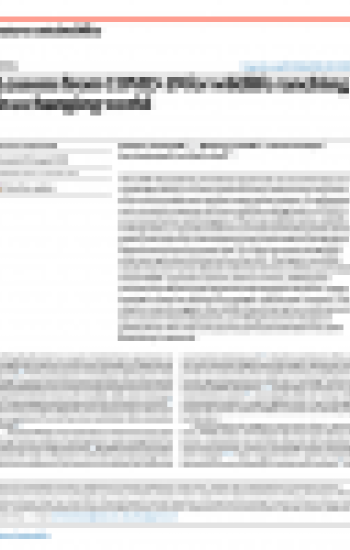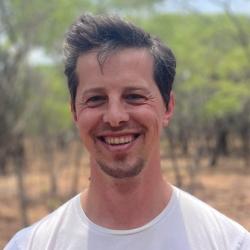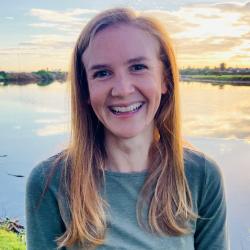
Lessons from COVID-19 for wildlife ranching in a changing world
The COVID-19 pandemic provided an opportunity to assess the impacts of a global disturbance on conservation land uses and learn from responses to the crisis to enable more resilient conservation systems. To understand socio-economic responses of diverse wildlife working lands to COVID-19, we surveyed owners and managers of 78 private wildlife ranches (wildlife working lands), 23 agricultural farms (conventional working lands) and six public protected areas (conventional conservation lands) in South Africa. Most protected areas lost more than 75% of their revenues during 2020, while most agricultural farms lost less than 10%. The impact on wildlife ranches was more varied.
Ranches with more diverse activities, particularly mixed wildlife–agriculture systems, lost less revenue, shifting their activities from those heavily impacted (international ecotourism, trophy hunting) to those less affected (for example, wildlife meat, livestock). This adaptive capacity suggests that wildlife-based enterprises could represent key ecosystem-based adaptations, providing lessons for integrated global policies that seek to incorporate private land models in the 2030 Global Biodiversity Framework.
Clements, H.S., Child, M.F., Lindeque, L. et al. Lessons from COVID-19 for wildlife ranching in a changing world. Nat Sustain 5, 1040–1048 (2022). https://doi.org/10.1038/s41893-022-00961-1
-

Dr Matthew Child
Research Associate -

-
Alta De Vos
-
Kyra Lunderstedt
-
Lehman Lindeque
We support the free flow of information. Please share:
More content
-

What Foot and Mouth Disease-free means for South Africa’s game meat trade
Ms Lydia Daring Bhebe…Explore the latest developments in South African provinces achieving and maintaining Foot and Mouth Disease (FMD) free status…
Articles -

The world wildlife trade regulator is 50 – here’s what has worked and what needs to change
Daniel Challender…Most countries implement Cites, the Convention on International Trade in Endangered Species of Wild Fauna and Flora as…Articles -

Enabling Sustainable Wildlife Trade
Prof Francis VorhiesEnabling sustainable wildlife trade is a key policy measure for growing Africa's wildlife economy. In this respect, CITES…
Articles -

Has CITES become too complicated to be effective?
Prof Francis VorhiesGovernments agreed to the text of CITES in the 1970s, which is quite straightforward. However, the agreement’s implementation…
Articles -

From poachers to providers: Can Africa's wild meat market save wildlife?
Dr Wiseman NdlovuHave you ever considered how wild meat could be more than just a cultural staple but also a…
Articles -

As a fellow of the African Wildlife Economy Institute (AWEI), I am excited to attend the upcoming 3rd…
Articles -

A theory of change to improve conservation outcomes through CITES
Dr Michael 't Sas-Rolfes…Here we articulate the implied theory of change (ToC) underpinning the design and operation of CITES (Convention on...
2025Research -

Wild Meat Value Chain Integration Systems: Opportunities for Value Chain Formalisation and Scaling in Africa
Dr Wiseman Ndlovu…Establishing a legal, safe and sustainable wild meat sector promises to potentially reduce demand for illegally sourced meat...
2025Research -

AWEI's 2024 Wildlife Economy Dialogue Series
Ms Emily TaylorRediscover 2024: A year of insight and inspiration
In 2024, AWEI proudly hosted three ground-breaking dialogue series in…
Articles
Get updates by email
Through impactful research, stakeholder engagement, and professional development, AWEI is supporting the wildlife economy across Africa. Please subscribe for occasional updates on our work and forthcoming events.
Sign up for a quarterly dose of AWEI insights
In a complex and changing world, AWEI generates strategic ideas, conducts independent analysis on wildlife economies, and collaborates with global scholar-practitioners to provide training and expertise for biodiversity conservation, climate resilience, and inclusive economic opportunities in Africa.
